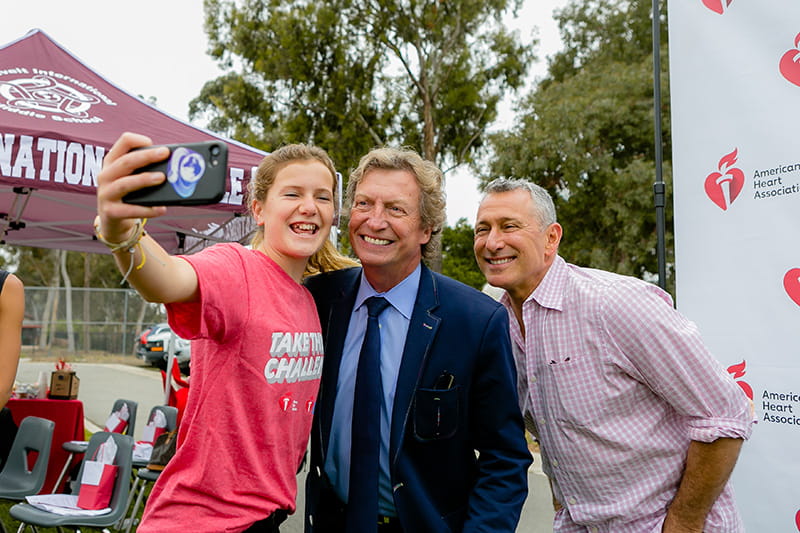So you think you can survive a heart attack? Nigel Lythgoe tells his story
By American Heart Association News

Reality TV brought fame and fortune to Nigel Lythgoe. So, it's no surprise he can spin entertaining tales about the real-life drama he experienced with his heart.
But the man once dubbed "Nasty Nigel" for his bluntness as a talent show judge sounded downright empathetic as he explained why he tells those tales.
"Listen," he said, "I suffered a heart attack before I realized how important it was to look after my heart. I hope other people realize long before they have a heart attack, and they live a long and healthy and happy life."
Lythgoe's ability to tell a good story has made him one of the world's most successful TV figures. A creator and judge for "So You Think You Can Dance," his long list of credits includes, perhaps fittingly, being director and producer on the British version of "Survivor." He became a household name in Britain as a judge on "Popstars" and was a longtime executive producer of "American Idol."
His first heart crisis struck in January 2003. He had just gotten back from a vacation in Barbados with "Idol" judge Simon Cowell, whom Lythgoe jokingly blames for what happened.
"He had me dancing all around this hotel," Lythgoe said, before adding: "I used to smoke three packs of cigarettes a day as well. Which obviously didn't help."
He was in the editing suite working on the second season of "Idol" when it happened. "I was literally in the edit with Ruben Studdard and Clay Aiken."
He thought he had indigestion and lay down to rest. "The next day I was still feeling bad," he said, but he kept working. Finally, on the third day, his wife convinced him to see his doctor.
"He examined me and said, 'Oh my God – you're having a heart attack!'"
Which was a surprise, he said, because he looked healthy, with his post-vacation glow. "I was tanned and brown to the point that my doctor said, 'I'm calling an ambulance for you. Can you try and look ill?'"
Doctors found a blocked heart artery and used a stent to open it up. But about eight years later, his heart had another nasty surprise in store.
He had gone to see a movie – "Cloud Atlas" – one afternoon and was alone in the theater when he suddenly felt dizzy. He staggered out of the cinema.
"I saw the poor girl behind the popcorn counter. I said, 'Call an ambulance, please.' And with that I keeled over."
He was diagnosed with an irregular heartbeat and ended up needing a pacemaker, a defibrillator and three ablation procedures to destroy heart tissue that was causing his heart's electrical malfunctions. "Since 2012, I've been good," said Lythgoe, who turned 70 in July.
Looking back now, he understands the mistakes he made when it came to his health. A longtime dancer, he choreographed for hundreds of TV episodes, working with the likes of Ben Vereen, Shirley Bassey and the Muppets.
"There was never a point in my life when I felt vulnerable to anything." He was arrogant, he said, and thought, "Oh, I can eat fries. I can do this. I can do that. I'm a dancer. I keep my shape."
But as he sees it, "The great thing about surviving a heart attack is you really do then take care of yourself. If you're lucky enough to survive it."
He's since given up smoking, sugar and dairy, and does Pilates twice a week.
He's serious about working to help others not make the same mistakes he made. He and "Hairspray" director Adam Shankman were together in Los Angeles and San Diego this spring to help with a collaboration between the American Dance Movement, a nonprofit they founded to build healthy communities through dance, and the American Heart Association's Kids Heart Challenge and American Heart Challenge.

Lythgoe's message about the lessons he's learned is, once again, direct.
"Nobody in this life gets out alive. But the big thing for me is to just stick around as long as you can. And if you don't look after your heart, if you don't look after your entire body, you're not going to be around as long as you should be."
If you have questions or comments about this story, please email [email protected].





